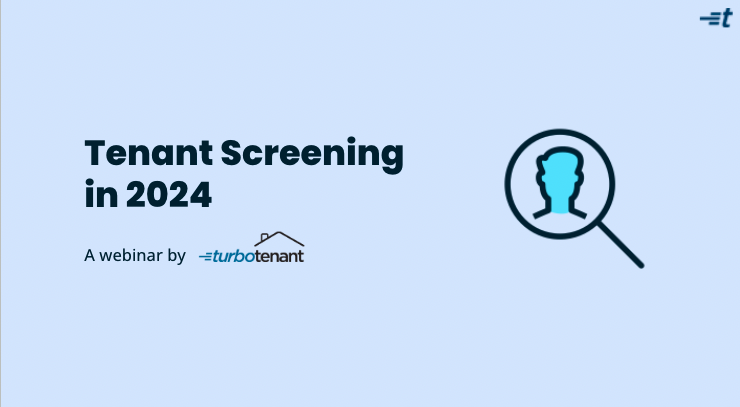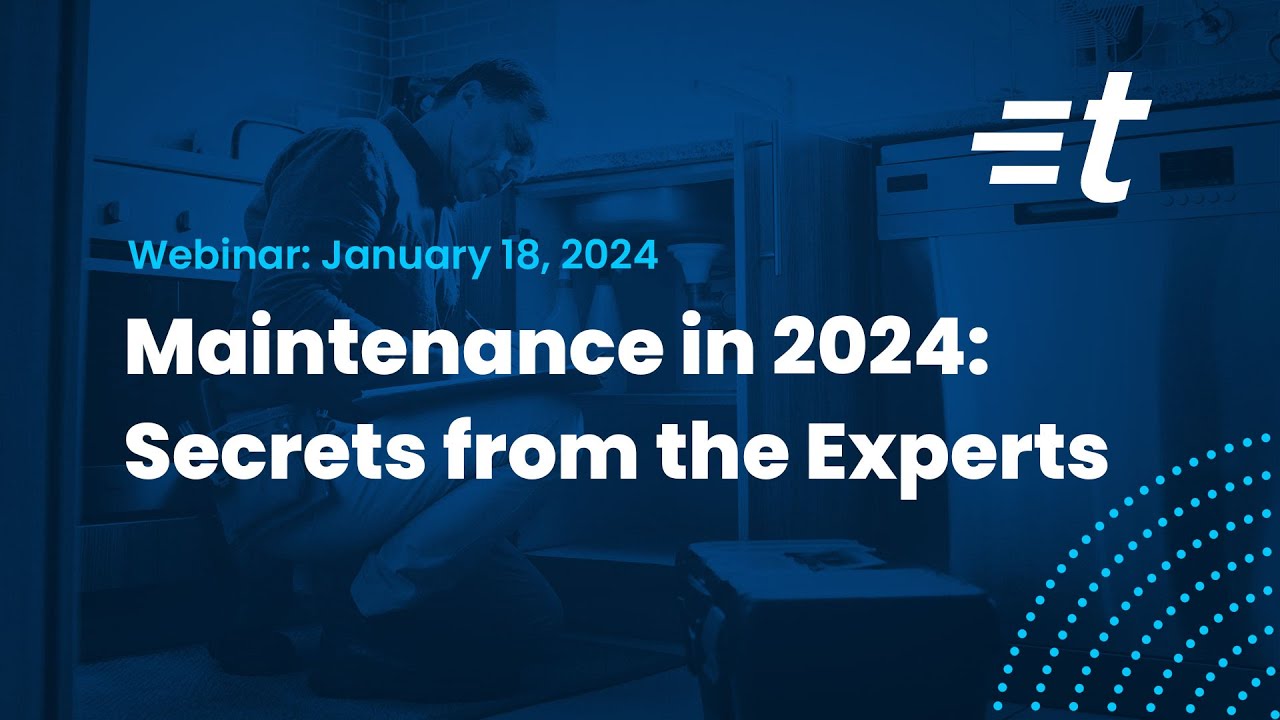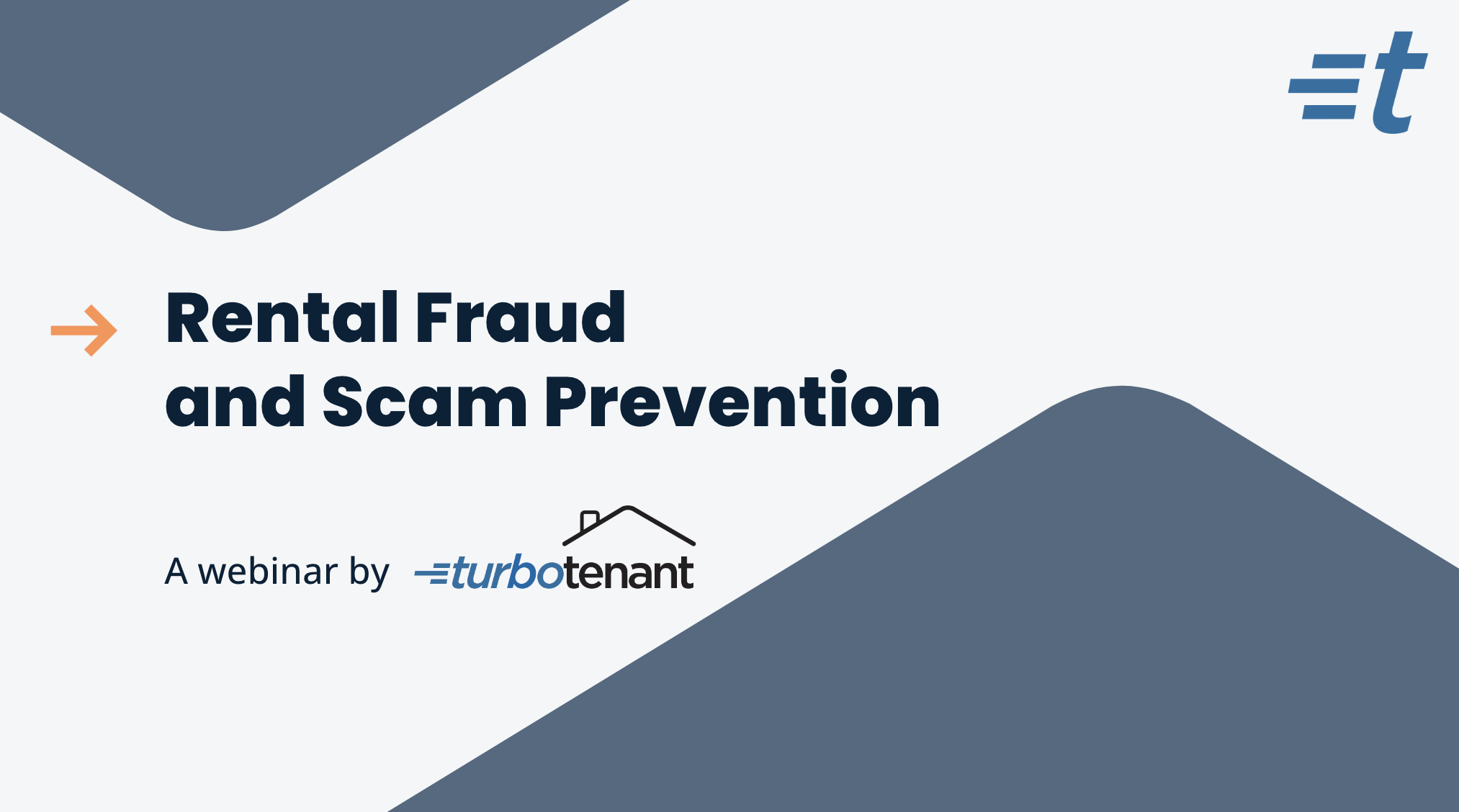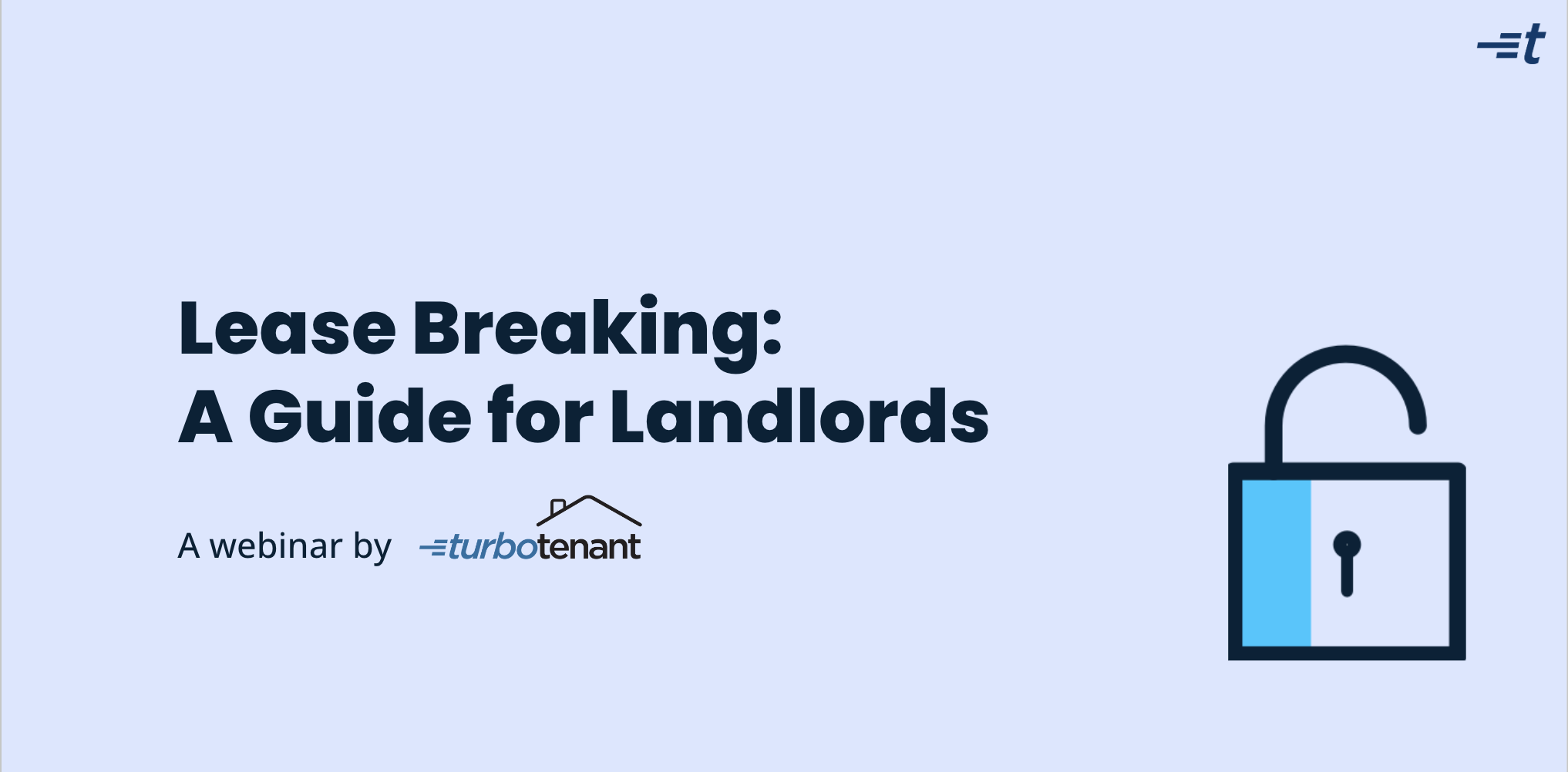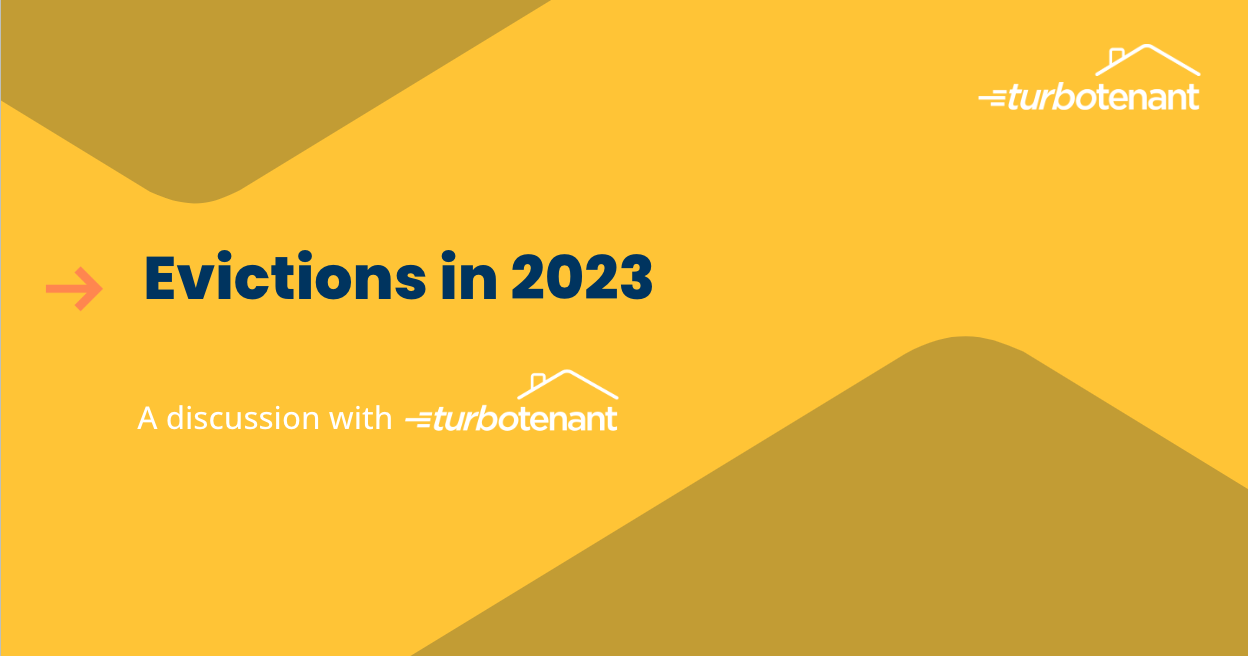Real Estate Goal Setting Webinar
In this webinar, we offer a deep dive into the essentials of goal setting for real estate investment, aiming to provide investors with the tools and strategies needed to make 2024 a landmark year for success. The webinar outlines five critical strategies for setting achievable goals, emphasizing the need for a robust support system to avoid the common pitfall of plans falling apart due to lack of proper backing.
Presenters


Key Takeaways
- Understanding the Psychology of Goal Setting: The amygdala and frontal lobe play crucial roles in setting and achieving goals. The amygdala assesses the emotional importance of a goal, while the frontal lobe examines the specific tasks needed to achieve it. Leveraging both parts of the brain can help develop the skills and behaviors necessary for success.
- Crafting Intentional Goals: To “hack” your brain for successful goal setting, set one big, challenging, yet realistic goal, and break it down into smaller milestones. Emotionally invest in your goal by understanding your “why,” celebrate wins along the way, and adjust your approach as needed based on progress.
- Using the SMART Framework: SMART goals (Specific, Measurable, Achievable, Relevant, and Time-bound) can simplify your task list, boost motivation, improve accountability, help manage resources, and increase the likelihood of a positive outcome. By making goals specific and measurable, you can track progress and make adjustments as needed.
- Identifying and Overcoming Blockers: Common goal killers include lack of automation, limited time and resources, self-doubt, and navigating the journey alone. To overcome these obstacles, identify your top three challenges and list two ways to push back against each one. Keep this list accessible to maintain momentum when blockers arise.
- Automating Your Business: Automating tasks such as lease management, rental advertising, tenant check-ins, and rent collection can save time, free up brain space, and streamline growth potential. Platforms like TurboTenant offer various tools to help automate and optimize your rental property management business.
- Expanding Your Knowledge and Resources: Continuously learning about key topics such as the warranty of habitability, notice requirements, conflict resolution, eviction alternatives, and business finances can help you stay informed and prepared as a landlord. Utilizing online resources and local networks can provide ongoing education and support.
- Building a Support Network: Connecting with other real estate investors and landlords through online forums, local meetups, and industry events can help combat feelings of isolation and provide valuable insights and encouragement. Surrounding yourself with like-minded individuals who understand the unique challenges of the industry can be a game-changer for your business and personal growth.
- Putting It All Together: By setting SMART goals, identifying potential blockers, automating your business, expanding your knowledge, and building a strong support network, you can create a solid foundation for achieving your real estate investment goals in 2024 and beyond.
Transcript ▼
Krista Reuther:
Hello. We are here to discuss goal setting and specifically give you some secrets of real estate investment goal setting so that you can make this year your best year yet. We are very passionate about this topic, so excited to jump into things. So today we’re going to be talking about the five strategies that you need to set goals that actually matter.
Right? You can see here some of the people in the mix with us in our poll. So I’m going to teach you five strategies to set goals that you can actually meet. I’m also going to point you down some avenues to find support along the way. You might be surprised at how often good plans fall apart because you don’t have proper support.
So let’s make sure you have everybody you need in your back pocket to make these things happen. And lastly, we’re going to wrap up with some information from one of our landlords and a member of the team who is going to put this approach into action with his goals and how he’s going to break that down. So let’s start off with the strategies here. As I said, you know, we all have lofty dreams and ambitions, but the thing that separates people who achieve those dreams from people who do not is making a good plan. So really, when we dive into this, there are five distinct secrets that I’m going to teach you today so that you can keep these in mind as you build out your 2024 goals. First off, I want you to understand the psychology behind setting goals. What do you need to have your brain doing in order to put yourself on the best track to making these things happen? So taking your dreams and making them into reality. Knowing how your brain works is going to be really important to that end. I’m also going to teach you how to craft your goals intentionally, really breaking down the different milestones and making yourself a plan that feels good from start to finish, even if you encounter some bumps along the way. With that in mind, we’re also going to talk about how you can optimize your business to support these goals. And as I alluded to, there are inevitably going to be some kind of blockers, doubts, etc.
that could get in your way of achieving what you want to do. So let’s plan around them. Lastly, I really truly believe in the power of community. So I don’t want you to have to do this alone. We have so many different resources to share to that end. And I’m really excited to hop into it. We’re going to start off with your brain.
That’s the best person to have on your team, for lack of a better word. So let’s talk about your brain on goals. There are two key parts of your brain that are involved in goal setting. So the first is going to be the part of your brain that’s responsible for dealing with emotions and creating emotional responses, aka your amygdala. You might also know it as the fear center in your brain, if you’re really into brain stuff like I am, because it is truly the center of emotion for people. When it comes to goals, the amygdala assesses how much a goal means to you and determines how important it is according to an online education provider, ISC Learn.
So they know their stuff. With that in mind, the amygdala is assessing and building emotional investment for you. The other key part of your brain involved in goal setting is going to be the frontal lobe. So the frontal lobe is going to examine what specific tasks need to be done in order to achieve your goal. So you really need to get both of these pieces of your brain working with you. When you do that, they will help you develop the skills and behaviors that you need to achieve your goal while trying to minimize behaviors that do not serve you.
Sometimes the behaviors that do not serve you are really tempting. So again, this is where the plan is going to come into place so that you have a confident outline for how to push past these little doubters, these things that might pop up and otherwise get you off track. So in order to make your dreams happen, it really comes down to a few different factors. One is having a good formula, which I’m going to teach you in these next couple slides. And then of course, the rest of this webinar will be teaching you the remaining bits and bobs that you need to know in order to really take what I’m teaching you and implement it in your own life.
So let’s start off with how to hack your brain. Your brain is going to look for something that is pleasing, that is validating, that isn’t so hard, that you feel like it’s impossible, but isn’t so easy that it bores you. So to that end, what you need to do is set one big challenging goal. Now it should be realistic, right? You’re going to struggle if your goal is to own all of the rental properties across America, but if you say, hey, I want to buy three more multifamily properties by the end of 2024.
That’s still a challenging goal, but it’s a little bit more realistic and it’s still building on the same sentiment behind the original goal, right? Growth, making sure that your portfolio is diversified, etc. Once you have that big goal in mind, you need to buy in emotionally. In other words, you need to understand why you’re doing it. So in our example of buying multiple multifamily properties, the why is growing the portfolio, having more cash flow come in, maybe feeling more secure about my retirement options. But you need to understand why you are doing what you’re doing and then keep that at the forefront of every single action you take.
That’s not all. I’m also going to have you break your goal into smaller milestones, right? So going back to my first example, I want to buy three multifamily properties by the end of this year. So that means to me, I want to buy my first property of the year in March. I want to buy my second one by end of June.
I want to buy my third one by October. I’m breaking it up into smaller milestones because that makes it so that the goal is not overwhelming. It gives me a really clear roadmap of what I need to do and when I need to do it by. And it still gives me time to pivot if I see that things aren’t working. Let’s say March rolls around and I haven’t found the right property and I don’t want to just buy a property to buy a property. Well, I can take that and I can adjust the remaining goals, remaining milestones to make sure that I’m still hitting everything that I need to do while being realistic and accommodating the market.
Okay. Next up, of course, this, and this is very important, you need to celebrate your wins along the way. Your brain loves winning, right? When you do something, when you complete something, you get a rush of endorphins, you are feeling good, that dopamine hits, and you’re like, yes, I’ve done it.
This is something nice, right? It gives you more steam to continue moving forward, especially if you have lofty goals that take a little bit of time. So that’s why it’s really crucial to map out some of those smaller milestones and pay attention when you actually succeed. If you don’t succeed at those milestones, that’s okay.
But what I would urge you to do is really sit down and try and understand why you couldn’t succeed. In my example, maybe it’s the market. Maybe I didn’t do enough research on the local market to understand what my options were. Maybe I got a little tied up in work and I didn’t commit the right amount of time to fulfilling that goal. Whatever it is, approach it without shame and without judgment so that you can then take those learnings and apply them to your next milestone. Maybe adjusting the dood, maybe adjusting your approach to the goal, whatever it may be, you don’t have to take the same behavior that you had at the very beginning of your goal setting and carry it through if it’s not working for you.
But the only way to know that is to pay attention to the journey along the way. All right. So we’ve talked a lot about the brain and how that works with goal setting, some of the things that you need to have involved in your goal setting to please your brain. I’m just going to take a quick look to see if there are any questions that have popped in. And let’s see, people are sharing some great information about, sorry, they’re sharing some great information about their goals in the chat, which is fantastic, but no questions yet.
So that is A-OK. We’re going to continue steaming along. When it comes to crafting your rental property goals, it’s really important to know what you want to achieve. But sometimes that can be harder to know than you’d think, right?
Especially if you are a new landlord and on the flip side, if you’ve been in the game so long that you’re like, I don’t really know what to do next. To that end, I would encourage you to ask yourself, Kath Kiles, go to questions. Now, Kath Kile is the leader of the Hustle Less Manifest More movement online. She took her first business to over six figures within its first few months using some of these questions.
So let’s go through. The first one you might ask yourself is, what struggles do you have with earning enough revenue? Maybe you want your rental property management business to overcome your nine to five full-time income, right? You want to switch it over so that you’re no longer reporting to the man. No offense, Jonathan.
He’s the man in this call. But maybe that’s something that you want to do. If that’s the case, there you go. That could be your goal for the year, right?
Maybe there’s something else though. So consider, what frustrates you the most about your business? What’s taking up too much of your time?
And sometimes you just need the right tools like TurboTenance Automated Rent Collection that could take stuff off your plate, or you can find other bits of software that can really take the stuff that is just weighing you down and alleviate it without losing the quality of your processor routine. Alternatively, you might want to ask, what limitations do you have with your mindset? Maybe you know all the things you need to know, but you are getting in your own way. Maybe you’re afraid of taking the next step in growing your portfolio.
Maybe you’re nervous about winding down your portfolio. There are so many different directions you could go. It’s all about understanding what could be in the way with this question. In a similar vein to the automation conversation, what work are you putting off because you don’t have enough time? And what problems do you have in your business at the moment? And to that end, why isn’t your business successful right now? So you don’t have to have an answer for any or all of these at the moment.
Again, we will be sending out this deck to you so that you can continue to chew on it. I think especially as small business owners, we find that these questions can really take some processing to sit down and be honest with ourselves about, you know, where am I not doing my best in my business? Because I either don’t feel like I have the tools. Maybe I’m just, I can’t commit to what I’m doing.
I have too much on my plate. Once you start to understand these pain points, you can tailor your goals accordingly. Once you have an idea of what you want your goal to be, I’m going to ask you to get smart. Now, smart is an acronym that ties back to goal setting, right? So when we talk about smart goals, we want them to be specific goals. So the goal is focused on a specific achievement. It’s clear enough that you can break it down into smaller milestones to achieve. Your goal should be measurable, which means it has to be measured in a way that you can track your progress.
Achievable means your goal isn’t impossible and it’s well within your capability to achieve it if you put your mind to it. This one can be really tricky for people because sometimes folks want to shoot for the moon and other times, you know, they’re like, well, maybe I should just start really, really small so I know that I’ll do it. And again, it’s all about finding that middle ground, where it’s something that’s challenging for you, but it’s not so challenging that you lose steam the first time that things don’t cope right. Next, you want your goal to be relevant. So it has to be related to your current situation or your future plans. And it should be something that improves your business performance overall. Lastly, here we have time bound, which means your goal should have a deadline because that allows you to work to that date and really tailor your plans to that end date, which means breaking up into smaller milestones along the way. And that helps you focus on completing the task in smaller bite-sized chunks. You might be thinking, well, this sounds fine. People have heard of Smart Goals, Krista.
Why talk about it? But there have been several studies done that try to understand why this framework is so helpful. And in fact, one study showed that over half of Americans believe that using the smart framework always helps them to achieve their goals. So again, it’s one way to be intentional to slow down, give your business the attention it really deserves, and make sure that you are planning something that’s impactful that you can measure along the way and overall achieve whatever goals in your realm. If I haven’t convinced you yet, there are additional benefits to having Smart Goals, namely that following this framework can simplify your task list, right? Completing your goals can seem really complicated if you’re not specific. If you just have a pie-in-the-sky dream of, you know, reaching financial independence, but you never quantify that, it’s really easy to get distracted, not do anything, and then you have nothing to show for it. So make yourself a clear roadmap by simplifying the tasks on your list. Also, Smart Goals boosts your motivation because you can scope out wins that you can collect along the way to keep you positive, motivated, excited about the things to come.
And I think that’s a big distinguisher. When you are looking at your business and you’re excited about it, you are likely willing to do what you need to do to get to your next spot, whatever that might be, versus someone who’s looking at their business and feeling very demotivated, right? Like why would they spend the time to continue forward?
They might just cash out and sell their portfolio that really just depends. But having a Smart Goal in place says, hey, I know that when I reach March and I buy my first multi-fail property, I’m going to feel like I’m going to move on to my next goal. Of course, Smart Goals also help you improve your accountability. By having specific time-bound goals in milestones, you can know whether or not you hit them. That might be intimidating because it’s so easy to just have an idea and then never follow through, but that brings a lot of shame and guilt. So by being able to say, no, I’m going to try and accomplish this by this date, that will really help you understand, one, if you are taking your goals seriously, and two, if you are the thing getting in your own way. Along this whole journey, though, I want you to be compassionate with yourself.
I want you to say, hey, maybe I didn’t hit this goal, but I’m looking at it. Here’s why I didn’t hit the goal and what I can change for next time so I can meet my next milestone, and it’ll be all the richer for it. Smart Goals also help you to manage your resources. And that’s really important because as any stay-at-home mom will tell you, you cannot do it all. It’s impossible to do it all. So instead, what you need to do is focus your energy resources and time on your goals rather than spreading yourself too thin with everything. This ties back to taking tasks off your plate, looking for automation opportunities so that your business can run without you having to have a touch point on every single aspect of it. Last thing here, Smart Goals increase the likelihood of a positive outcome. So by having your milestones mapped out on the timeline that you get to create, you’ll know how you’re performing. And that gives you plenty of time to pivot and adjust your approach to ensure that you have the best results possible.
So it really puts everything back in your own control as much as you can, right? So with that in mind, what do you want to accomplish this year? Start with something broad, of course.
That’s what we’re going to do here. Maybe you want to buy a certain number of doors. Maybe you want to achieve financial independence. Maybe you want to expand to a new market or even across to a new state. But I would love for you to tell us in the chat what your big goals are for 2024. All right, Darlene wants to buy an 8-plus apartment building.
That’s awesome. Connie wants to replace their W2 income with cash flow for rentals. Very achievable, I think. There are so many different avenues that landlords can take with their different goals. Georgia wants their current rentals to be profitable all year round.
We’ve got cash flow. Jennifer wants to pay off one of the rentals. LaLena wants to get two to four more doors. Daphne wants to retire.
Have enough to retire comfortably, which is beautiful. Odell wants to raise the tenants’ rent on average by 12%. Interesting. Joe LaLena invested in a multifamily or more residential homes. Wanda wants 10 doors.
By Carlo, six to eight doors. There are some really interesting things in here. This is fantastic. So again, use your resources. Many of you have similar, if not the same goal for yourselves. I want you to remember that this is a community.
Georgia is asking about the 12% rent increase, which is fair. If you guys want to chit chat about it, absolutely do. These are great.
Keep them coming in if you’d like. Remember to make connections with your peers in the chat. Like I said, someone in this chat has probably achieved the goal that you are looking to do yourself.
It’s really great to learn from each other. Use the resources at your disposal. All right. So we’ve got our big broad goals.
You guys shared so many of them in the chat, which was fantastic. Now let’s talk about getting specific. So for example, I believe it was, let’s pick, Carlo, I’m sorry if I’m butchering your name, wants to buy another, a certain amount of doors. So I would get that to be even more specific, by putting some time onto that. So for example, if I wanted to buy another 10 doors, I might say, I will purchase, well, I’ve made my example too big.
If I want to buy another four doors, then I would say I’ll purchase one duplex every six months, so that I gain four doors by the end of this year. And you could do this with every single goal that we saw in that chat. Every big goal can be broken down and be made more specific to follow the smart framework.
So expanding into a new market, maybe that means I will purchase property in Wyoming by December 31st of this year. I just want you to have something with the date attached to it broken down so that you can really understand your progress as you go. That’s the winning framework, the winning formula in this case. Beyond having a goal in place, what you really need to know is how not to get discouraged when things don’t go right. Because if we could just control everything and make sure that everything was going right all the time, that would be fantastic.
I would never have anxiety a day in my life. But that is just not the case. There are a lot of different things that can pop up, whether that’s external people like naysayers who don’t want to achieve your goals, don’t think that you can and aren’t afraid of letting you know that, to even self-doubt, which gets in the way of being confident in your business, taking risks, etc. So it’s really important to identify those things and then make a plan to overcome them. To that end, in the chat once more, I would love to know what’s the biggest thing standing between you and your goal? What are the blockers, naysayers, or doubters in your corner that are getting in your way?
Let’s see. Financing, that’s a big one for people. They really want to know how to get money so that they can continue to grow. We actually have a chapter in our ebook all about that, which I’m very excited. I’ll talk a little bit more about the ebook later. However, let’s see. Okay.
More goals coming in, some questions. Financing is a huge one. Money is what makes the world go around.
It is the thing that we all are looking for, trying to build up, have enough of, and it’s at the heart of a lot of our goals. So understanding where you can get financing is really important. Lynette says, fears financing, lack of resources. Yeah. Macarlo says, financing and discipline.
So financing is coming up quite a bit. Nathan said, biggest naysayer is their significant other. And that’s really hard. It’s really hard to have somebody in your intimate circle who isn’t afraid to tell you that you’re not succeeding. And I can’t pretend to know your situation, but that is really challenging.
If there is a person in your life like that, I hope that you can sit down with them and let them know, hey, here’s what I’m looking to achieve. I would love your support in this way. Maybe it’s just, I would love your support by giving me 10 minutes when I get home so I can go check my latest rental property information and see if I will invest in another one.
But by giving them something concrete to be more in your corner, that can help them shut the naysayer valve off and increase their support. All right. Got some really great information flowing in the chat. Ken says, limited knowledge on multifamily investing. Very fair.
We’ve got some great multifamily investors in the chat, so feel free to talk. This is all great. So you guys understand what’s in your way. By and large, it’s seeming like financial stuff is the main crux, which is fair. As I said, money is very important, especially in your investment game. So we’re going to talk about it alongside some of the other common goal killers.
Right? So beyond financing, other things that often get in people’s way are simple enough, at least from the outset, right? So it’s things like lacking automation in your business, feeling like you don’t have the time or the know-how, alluding to those resources that one of you mentioned in the chat. And of course, navigating your journey alone, it can get really lonely being a landlord. I know that there’s a lot of stigma about being a landlord, and that causes some people to not even tell anyone in their life that they are doing this. In fact, I had a conversation once with a gentleman who he had his business in an LLC, which that’s great, but he also just refused to tell anyone that he was a landlord, almost like he was ashamed of it, almost like he was nervous for them to find out. And that made it really hard for him to be proud of his business and to try and achieve the next step in it, which for him was acquiring more property.
So we’re going to touch on all of these and figure out some strategies so that you can feel more confident losing forward. If I could solve the financing part for you, I would just give out some money, but let’s focus on these bits and bobs, starting off with lacking automation. So when I’m talking about automation here, I am talking about basically making it so that the processes of your business run automatically. So the reasons that you should consider finding automation points in your business are to save yourself time. Again, usually there are tasks like sending receipts for rent payments that you have to do in many states, but they just take up time and you have to go onto your computer, you have to pull the receipt, you have to send it to the purse and you have to, you know, X, Y, Z, and it sounds like a small time suck.
But when you add that up month after month, year after year, you can really see how much of your time you’re wasting doing something that a service like TurboTenant could do for free for you, right? Just take it off your plate so you know it’s getting done. But that way you don’t have to stress and log on and do it every single time or worry that you’ve missed it. Additionally, automating your tasks is going to free up your brain space. Instead of having that little corner that’s like, oh, I need to get Maria her receipt and I need to make sure that Justin got his receipt too, you can take that space back and use it for your goals, use it for your next step instead of worrying about some of the more administrative work of your business. Lastly, when you automate your rental property management business, you are streamlining your growth potential. Because again, if you have more time and more brain space, that leaves you better opportunities to pursue more education, pursue different investing opportunities, make connections with your local peers.
I mean, just by being able to take some of these tasks off your plate, you’d be surprised at how much more the world opens up for you. So I highly recommend it. Wherever you can. There are many different avenues.
And of course, I’m quite partial to one of them, right? So consider the different types of property management tasks that you can automate, like managing a lease, even advertising your rental. Because that is something that you’d be surprised at how often people get bogged down and they feel like they’re not getting anywhere. And then they try something like an online syndication network, and they’re suddenly getting leads in. And it’s the same listing, but they just put it to work so that they don’t have to go and upload it manually on every single site, right? So again, if you use something like TurboTenet, you write up your listing once.
We also have an AI generated listing description tool so that we will write the copy for you. You do a quick check, make sure it’s all good. Post it, we get it across more than 50 different listing sites. And then you get leads rolling in. On average, our landlords see 28 leads per listing. Pretty impressive, plenty to choose from.
That is an average though, so keep that in mind. Additionally, you should consider automating your tenant check-ins. Having a touch point with your tenants is really important, especially if you want them to be proactive when it comes to maintenance or things going awry in the rental, it’s crucial to have that back and forth.
You can automate that. If you collect rent with us, we actually send your tenants a little check-in every time they pay rent so that you can get a pulse on how the rental is going without needing to schedule a text, follow-up, etc. If they indicate that things are not going well, we let you know so you can start that conversation, but otherwise, things are gravy. They feel care for it because they are getting checked in upon. You feel confident because you know that they would be reaching out to you via our system if there was something going wrong, and it’s all automated so you don’t even have to think about it. All of these tasks are just a sampling of the different ways that you can automate your business. There are so many different ways that you can take this and run, both within TurboTenant. This is just a fraction of our tools and outside of it if there are things that you’re really passionate about. Do not think that you are too old or too dumb to automate. It’s blunt to say it that way, but I’ve had several folks approach me, especially at our last conference, that said, Christa, I’m on a slip-phone. I don’t know how to use this software, and I’m embarrassed to say that. It’s not something to be embarrassed about.
Just for us, here at TurboTenant, we make so many video resources for you to walk through every single aspect of the product. You never have to do it alone. Don’t be afraid to ask for help.
There is not an age limit on needing help, and it’s really, really important that you do. All right. We’ve talked about automating. Now, let’s talk about not having the time or resources. There’s so much to learn in the rental property management game.
The landscape is huge. The laws are ever-changing. So it can be overwhelming when you first start off, or even if you’ve been in the business for 50 years and things are changing around you and you don’t know what to cover next. What’s most important is knowing what you need to know and understanding what you have to learn. So I’ve outlined some topics here for you.
When we send over this deck, you can click through. Each of them leads to a resource, whether that’s a video or a blog. But we will cover all of these things for you. And anything else that pops up, we really want to help you succeed. I’ve also given you a little tip here on how to use Google to search our entire library of content for whatever you’re looking for. I just want you to have all the tools that you need so that you can get everything done, that you want to get done, and make your 2024 the best for your business yet.
All right. So if you are covering things, you understand the warranty of habitability. You know that you need to give your tenants notice before you enter. You have some conflict resolution tools in your belts. You know the alternatives to a fiction, but also the laws in your state if you do end up having to go down that path. And of course, you know the business side of your business via taxes and accounting. You should be in a really good spot. I would say never stop learning though. Stay tuned in with your peers, whether that is virtually in our Facebook group or in person if you have a local REI that you are a part of. Leverage the people around you.
Because the thing is, there’s nothing worse than being a lonely landlord. Okay. We understand why this can happen.
I talked about it a little bit earlier. It is very easy to feel isolated as a landlord or as a property manager and feel like you have nobody to talk to. We even saw in the chat that some folks’ spouses are not the most supportive of this endeavor. That’s why I want you to be proactive and find people who understand the industry’s unique challenges and then build relationships with them. Right? I’m not saying approach people and only talk business all of the time, but if you both share an interest in real estate and in property management, that is common ground to start off a really good friendship.
Right? It’s a great way to connect with people. And when you do that, you can lift each other and your renters up in the process.
The goal is to be the best landlord you can, which means being good for your community, being good to your tenants and being good to each other. If you are not sure where to meet people, I can help. There are quite a few different avenues. So first up, landlording doesn’t have to be a solo sport. In fact, it can be fun.
It can be rewarding. What you need to do, though, is put the human aspect of the very forefront to that end. I’d recommend joining some real estate focus groups. So of course, we have Better Landlords, which is TurboTenants Facebook group for landlords by landlords. You can go in there.
It’s always popping in the chat. You can ask questions, get feedback, go back and forth about the local laws in your area versus someone else’s and try and strategize about how to deal with them. Anything you need, any kind of support, you are likely to find it in that group. Alternatively, you could look at Meetup.
We also have a presence on there. But Meetup can be used for both virtual and in-person events, which can make it really easy to find some casual lunches or casual hangouts with other real estate investment groups in your area that you might not know about. So I’d recommend, once you get this deck, clicking on that link, poke around and see what’s available in your area. That’s where you’re most likely to find your local investment cohorts.
You can also Google them. I have some tips here about that. So of course, once you find a group, especially if it’s in person, you’re then going to need to be brave and commit to going. Because that can be a really hard part, especially if you have been kind of lonely for a while or you’re more introverted. But I would encourage you to go.
Let yourself out there and just give it a whirl. If you don’t like it, you don’t have to go again. And you could just stick to online stuff like our Facebook group.
But being there in person, there’s a certain kind of magic in connection and you really feel like you’re a part of the community. Do that. And if you are in Denver or in Colorado, we are hosting an in-person meetup on the 8th.
We can drop information on that in the chat. But just be on the lookout for ways to connect with people, especially offline, if you are feeling lonely. You don’t have to feel lonely. You don’t have to go about this alone. So we do have a poll question for this one.
I am curious, where do you find support for your rental property management business? I’ll give you a second to tune in there. All right. Personally, what I really love about being a member of the Turbo team is that so much of the support comes from in this business, in this house. So many of my peers are just top of their game and them succeeding and watching how they play out, especially with their investments, is really fascinating and inspiring to me.
So there are always places to find support, although my heart is hurting for y’all who are saying that you don’t have support. I’m going to let this run for about 10 more seconds and then we’ll go ahead and show you the results because they’re interesting. But sometimes my brain works faster than my mouth, so you just saw that in real time. Congratulations. All right. Enough of that.
Let’s see here. So, unfortunately, it looks like 44% selected that they have no support. And I really urge you guys especially to go and take advantage of these resources once the deck is sent out. You deserve to have support. It’s going to be easier to make your goals happen if you feel like you have someone who is rooting for you. And sometimes it’s not enough to be the only one rooting for your success, right? Because we all want to do well. But when you have that outside voice who is validating, who is noticing how hard you’re working and isn’t afraid to tell you what a good job you’re doing, it’s a game changer. After that, though, the next highest score is the spouse.
Love that. Love the support of spouse and friends. So it is always good to leverage whoever you have and just hope that they’re on board with your journey. If they’re not, I’m not going to say divorce your spouse. That seems a little bit outside of the realm of the advice I should give. But I will say find more friends.
Find more friends specifically in real estate investment groups and go about it that way. So let’s put all of these pieces together. How are we going to push through when blockers come up? Well first, what I want you to do is identify the top three challenges most likely to stand in your way this year. Write them out.
Don’t be afraid. Whether you’re doing it old fashioned style like me on a pen and paper or you want to leverage one of our work sheets that we’re sending after this call. Either way, make sure that you have defined the blockers that are most likely to get in your way. And then I want you to list out two ways that you can push back against each challenge. So think about who could help you.
What kind of resources do you need? How do you know you’ll have overcome the blocker? So let’s give an example. Let’s say one of my biggest blockers is that none of my friends are passionate about rental property management and it gets lonely when you’re doing it by yourself. So the two ways that I could combat that, I could look at local meetup groups and commit to trying at least one meetup group per month. And I could join some virtual meetup groups, whether that’s better landlords, the Facebook group, or something else. Maybe I’m looking for a women in real estate group specifically.
Whatever your interest is, there is likely a group out there that could help meet it. So keep that in mind and I want you to chart it out as you go through each blocker. Then keep this list easily accessible.
Okay? These blockers are bound to pop up. You’ve identified them as the top three challenges most likely to get in your way this year. And by having your game plan ready to go, you will feel less discouraged when something does arise. You can say, oh no, sometimes I might crumble under those feelings. Sometimes this might give me a reason to doubt myself and stop in a bid in my goals. But this time I have a list of action steps I can take in order to push beyond. That is going to help you maintain momentum and meet your next milestone.
So again, keep it easily accessible. With all of this in mind, all of this information, I am so excited to introduce one of our Turbo tenant landlords. In fact, he is the boss of my boss. He is Harrison Stevens. Hello, Harrison. Hi, Chris. Thanks for having me. Of course. Thank you for joining us. Can you tell the people a little bit about your goals?
Harrison Stevens:
Sure. Well, first, I’m the vice president of marketing here. I joined in October. Just a little bit about me as well. I’ve had two rental properties. The first was a property that I lived in and then moved out and rented it out and then sold after a few years. And then the other one is one we intentionally purchased as a rental property.
And we’ve had it for five years. I do plan to sell that today. And we’ll probably buy another property here in Colorado since I moved to Colorado. And my goal is to basically have my investment properties compete against other investments I had, which would basically say I needed to average 5% growth annually. That would be 5% off of what I put in to purchase the property.
My dow payment and whatever closing fees, et cetera, and make it feel like it’s passive. Especially if it’s in Florida, I can’t fly across the country on a regular basis to manage it. So that’s a big goal for me. And then it also needs to be profitable after the first year. I know the first few months there might be expenses and things like that to get things going. But after the first year, I’d like it to be profitable.
Krista Reuther:
That all makes sense to me. It’s a really good goal. Now what I love here, it is specific. You have percentages you have math to do along the way. And that will help you know when you’re getting close to your actual goal, right? Yep.
Love it. Okay. So this is a little bit fun for me. I figured we might do some question to answer time. So if you’re down, Harrison, could you tell us what tools you plan to use to make these goals happen? Sure.
Harrison Stevens:
A big part of it is just research from the beginning. What will my carry in costs be for taxes, insurance, my mortgage, because I would get financing. And then what is the rate that I could charge for rent? That kind of helps you figure out if that 5% is possible for the property. I use tools, start with that and offer some of these tools. They’re a rent estimator, which I use. And I check even on my existing property. And then other things from here are just ways to make it easier.
Am I going to… I want it to be passive. So I want to collect rent automatically and not have to follow up with people. I want to make sure that when it comes time for taxes in a month or two that I don’t have to do too much work, neither of my expenses are tracked. I really want to make it feel like it is passive.
Krista Reuther:
Yeah. Absolutely. That’s such an important part of making sure that your goals happen is having these tools in place and knowing what lepers you can pull. So good job. You passed that round. My next question for you, what potential blockers could stand in your way?
Harrison Stevens:
I mean, obviously financing rates could be tough to buy based on some of my criteria. So that’s something that a lot of people mentioned today. I feel that you’re there for sure. One blocker also specifically in Florida is taxes and insurance are just really expensive and continuously going up. My carrying costs have gone up by 50% in five years. Age away fees have tripled for me.
So those are some of the reasons why I’ll be selling because it’s just I’ve had to raise the rent at $1,000. I don’t know if I can continue to do so. Wow.
Krista Reuther:
Yeah. And especially with that housing market piece, how might you push through? What could you do to get around that blocker?
Harrison Stevens:
Yeah, one of the reasons why my 5% goal wasn’t as easily obtained was I wasn’t paying attention to the rent that I could be charging. I raised the rent a little bit each month and then we were hit with the realization pretty quickly that my carrying costs got too expensive too fast.
And if I was paying attention to the rate of rent around me closer, I would have been able to maintain my goal every year versus missing it for a year.
Krista Reuther:
Yeah, absolutely. And to that end, I might recommend attending some local investor meetings and letting people know what you’re doing so that they can help point you in the right direction.
Harrison Stevens:
Yeah, I totally agree. I think if I were attending local investor group meetings in where my property was, I would hear about it and know what the feeling of the market is. So one of the reasons why my next property will be in the Denver area where I live now because I’ll have a better pulse on what the market is like versus managing it remotely. Absolutely.
Krista Reuther:
I think that’s brilliant. Something else that you didn’t specifically say but that I am going to suggest is finding reliable tenants because especially as you enter a new market, you might not know where to look. Do you have an idea how you might push through that? Yeah.
Harrison Stevens:
I mean, this is one of the benefits of knowing everything about tournament attendant is the syndication we offer just allows me to send out my property to so many places and get a high amount of leads. And then I can bet them through the background checks and other criteria like the red to income ratio and using a calculator we also offer to confirm that that’s the right amount for me to ask for. That way I’m just confident that they are going to be a good tenant and then making sure they’re happy so they stick around. I’ve been fortunate that with two rental properties, I’ve had two tenants. I hear the same tenant. So keeping them happy and basically baking in costs to repair things throughout the year quickly will make sure that they stick around so that I don’t have to miss a month’s rent by finding a new tenant. Absolutely.
Krista Reuther:
Vacancy can be so expensive. So kudos to you for keeping your tenants so happy that they’re willing to stay for such a chunk of time. That’s really great.
Harrison Stevens:
I’ll say it’s a lot of luck to.
Krista Reuther:
Sure. All right. My next question for you. Can you describe where you get support?
Harrison Stevens:
Sure. I mean, I have a spouse that is interested in this and looks at things that in a different perspective that I do, which can be a challenge, but most of the time are more to bounce ideas off of them and get like a different way of thinking. I have one or two friends that are really interested in real estate investment.
Fred has now got into 10 doors in two years. So I’m really going after it and just really passionate about it. My sister is a broker, so she has kind of helped educate me earlier in my real estate investment career. And then I’m just lucky to work with an entire company full of people that are obsessed with this industry.
I mean, Chris is just one example. I’m sure you get the feeling she has about this stuff. She loves it. And I just learned by sitting next to people. And that really is an unfair advantage that I have.
Just no other way to say it is I couldn’t get more information just casually shared with me. But it is also the advantage of having a support group is I just don’t have the time to sit and research all day and having people around me that do, whether it’s my sister, my wife, or the team around me, is just the best way for me to learn and make it easy.
Krista Reuther:
I love that. Yeah, definite perk of being part of the Turbo team is just being absolutely steeped in so many brilliant people’s ideas about the rental industry. So jazz to be a part of it. Thank you for breaking down how you’re going to use smart framework to make sure that your goals happen. And we look forward to seeing them unfold along the way. Awesome. Thanks for having me. Oh, of course. Now, I’m not going to let you off the hook quite yet, just in case people have questions for you.
But I will tell you as the audience, I’m very proud of this. We have a getting started ebook series dedicated to providing step by step guidance for every single stage of the rental property management lifecycle. So whether you are an aspiring landlord, you have no doors currently, or you’ve been in the game for a while and you just want to brush up on some best practices.
We have this beautiful series that’s going to cover all the information you need to know, including a chapter on financing. And we’re so jazzed to share it with you. So Jonathan, in the ether, if you could please drop a link to this ebook, that would be barely felt appreciated.
Of course, we will send out this deck. It is linked on this page. You can go and explore the first chapter, which is all about goal setting. Chapter two hits on financing and different options that you might not know about. And then we get into the rest of the beautiful information, whether that’s how to find a tenant fast, but be very confident about who’s moving in to the best way to collect rent.
So collated a lot of good information for you. Very excited about it. But for now, let’s see if there are any questions that we can answer in the chat. And do, do, do. Okay.
Not a question, but darling, I love that you found support by joining a bridge card club game, because many of those folks had careers in real estate. That’s really beautiful. I love that.
Looks like we’re making some good connections in the chat. I saw one person ask about getting started in multifamily investing. And that is a really good question. Jonathan, of course, dropped our ebook.
So you can look at that as well. I would say what I hear most from people getting started in multifamily is to pursue something like a duplex or a triplex where they can live in one of the units and then red out the remaining ones. If that is too foundational for you, you’d have some experience with single family rentals. I would still say start with a smaller building versus a bigger one. But Harrison, I’m curious about your thoughts. How would you recommend people get involved in multifamily investing for the first time?
Harrison Stevens:
I mean, I like your first comment of, you know, if you can rent out one of the units yourself, it certainly makes it a lot easier to manage when you’re on the premises. Other than that, I think a lot of it has to do with setting these goals.
And the financing part is certainly a new hurdle for all of us with what the rates are right now. You know, research is probably your best bet at the start of what are the things running for, what can you purchase something for? Does this meet the goals that you want to achieve? And is it something that you think you can manage? That’s usually where I would start for even just a single family home, honestly.
Krista Reuther:
I love that. That’s really good advice to tack on something that you inspired me with. Having your rental closer to you, especially if you’re getting into a new property type, is probably going to make it a little bit easier, right? Like, I think I would struggle if I tried to buy a multifamily in Florida right now, because I wouldn’t have eyes on it all the time. I wouldn’t be able to drive by and see how things are running. So stay local, but then jump in. And after you’ve done your research, of course, we do have a question.
What to do about maintenance? Well, darling, great news. That is one of the things we cover in this ebook series. So when you go to the link that Jonathan shared, you can sign up to be notified of future chapters unfurling. We publish one a week. So the next one is going live.
Actually, it went live today. So you can get chapter three. It’s all ready to go. But broadly speaking, what to do about maintenance? Make sure that you’re being attentive to your tenants maintenance requests, that you’re taking them seriously. Not all requests are created equally. So there are some that you’re going to need to jump on right away and some that can wait a little bit, but you want to acknowledge that there is an issue going on first and foremost. If you would prefer to not have to deal with maintenance and then you’re in one of our exclusive markets, we do have a wonderful partnership with a company called Lula.
It’s called Maintenance Plus, which allows you to be very hands off with your maintenance because we will manage it for you. So if you’re interested in more information, Jonathan, would you please drop a link in the chat and people can go see it. So two calls of action for you there.
One, make sure you’re signed up for the ebook to get future chapters. We cover maintenance from start to finish, including some tips on how to make it as seamless as possible for you and your tenant. And two, if you’re in an eligible market, you might be able to sign up for Lula. Anything to add with maintenance or anything that has surprised you about maintenance from the landlord’s seat? For me? Oh, yes. Sorry for you.
Harrison Stevens:
I mean, I think Lula’s maintenance is definitely the biggest challenge for me, especially being remote. Um, I, I have my sister, the broker who lives near the property, you know, provided me with a handyman and he’s repaired two things. And I honestly hope that it went well. Uh, that’s kind of the scary part about the remote side of things for me. Um, it’s why like I love Lula partnership, uh, because that was one of the things that really checked off one of the biggest challenges for me personally. Um, and then here in Denver, I have a maintenance person just from my own property. Um, and it’s installed some things even in the office and it’s, you know, trying to just find somebody to do a small project at first, get a feel for how they work, uh, and, and build a trustworthy relationship. And obviously if you can get their work that goes a lot way. And, uh, hopefully you can start small with new people rather than having a maintenance person come in for something big. That’s where you can, uh, get into trouble. So being proactive, something small that, you know, as a long risk of a chance of problem, get a feel for how the person works with you is what I’d write.
Krista Reuther:
Beautiful advice. Um, and let’s see. I thought I saw a question and it has gone. Okay. Uh, somebody asked how to utilize, I’m guessing maintenance plus. Um, and they just followed up with that. Yes. So if you log into your Turbo tenant portal and you navigate to the maintenance tab on the left-hand side of your dashboard, when that pulls up, if you are eligible in one of the markets where we have Lula currently, then you will see a banner at the top of the screen.
Actually pause. If you are eligible, you will see Lula information on the maintenance screen as soon as you click into that page. If you are not in a market that is eligible yet, you will see a banner. You can click on that banner and let us know that you’re interested. We are always looking to roll that out to more markets.
We just need to know where people want us to go. So again, log into your Turbo tenant account, navigate to the maintenance tab. The page will either have information about Lula right there in maintenance plus, or you will see a banner. If you see a banner, click on it. Let us know that you’re interested.
We take that very seriously. Harrison, thank you so much for sharing your wisdom and expertise today and for letting me bully you with some questions. I really appreciate it. Oh, thank you again for having me.
Of course. Audience, we will send you over. I really appreciate you guys being here today. Please make sure that you fill out the survey at the end of this session. We do have a cheeky little poll. I don’t know if we can pop it yet.
Maybe it’s too late. But either way, I really appreciate all of y’all being here. So make sure you fill out that poll. You’ll see a quick survey. Let us know what you want to learn next and we will see you next month. Thank you so much. Bye.
Top questions asked by the audience:
What are the five strategies for setting goals that actually matter?
The five strategies for setting goals that matter are:
- Understand the psychology behind setting goals.
- Craft your goals intentionally, breaking them down into milestones.
- Optimize your business to support these goals.
- Plan around potential blockers and doubts.
- Leverage the power of community for support and accountability.
What are the two key parts of the brain involved in goal setting?
The two key parts of the brain involved in goal setting are the amygdala, which assesses the emotional importance of a goal, and the frontal lobe, which examines the specific tasks needed to achieve the goal.
How should I set a challenging but realistic goal?
Set a goal that is ambitious but attainable. For example, instead of aiming to own all rental properties in America, you might set a goal to buy three multifamily properties by the end of 2024. Break this down into smaller milestones, such as buying the first property by March, the second by June, and the third by October.
Why is it important to celebrate wins along the way?
Celebrating wins provides a rush of endorphins and dopamine, which keeps you motivated and positive. It helps you stay focused and continue working towards your larger goals.
How can I craft my goals using the SMART framework?
Ensure your goals are:
- Specific: Focused and clear enough to break down into milestones.
- Measurable: Trackable to monitor progress.
- Achievable: Realistic and within your capability.
- Relevant: Related to your current situation or future plans.
- Time-bound: Have a deadline to maintain focus and progress.
What should I do if I encounter blockers or naysayers in my goal-setting journey?
Identify the top three challenges likely to stand in your way and list two ways to overcome each challenge. This might involve seeking support from peers, using new resources, or adjusting your plans to navigate around obstacles.
How can I automate my rental property management tasks?
Consider automating tasks like managing leases, advertising rentals, and tenant check-ins. Tools like TurboTenant can help by automating these processes, saving you time and freeing up your brain space for more strategic activities.
What resources are available for learning about rental property management?
There are many online resources, including videos and blogs. TurboTenant offers a variety of educational materials, and joining local real estate investment groups or online communities like the Better Landlords Facebook group can provide valuable insights and support.
How can I find support in the rental property management community?
Join real estate-focused groups, both online and offline. TurboTenant’s Better Landlords Facebook group, Meetup, and local REI groups are great places to start. Building relationships with like-minded individuals can provide valuable support and advice.
What tools can help me achieve my real estate investment goals?
Use tools like rent estimators, automatic rent collection services, and maintenance management systems. TurboTenant offers various tools to help landlords streamline their operations and achieve their investment goals.
How do I find reliable tenants?
Use a syndication service to list your property on multiple sites, conduct thorough background checks, and use tools to verify applicants’ rent-to-income ratio. Keeping tenants happy through proactive maintenance and good communication can also help retain them longer.
How can I start investing in multifamily properties?
Begin with smaller multifamily properties like duplexes or triplexes where you can live in one unit and rent out the others. Stay local to manage properties more easily and attend local investor meetings for advice and support.
What should I do about maintenance for my rental properties?
Be proactive and attentive to maintenance requests. Use services like TurboTenant’s Maintenance Plus if available in your area. Building relationships with reliable maintenance professionals can help ensure quick and effective repairs.
How can I get started with TurboTenant’s Maintenance Plus?
Log into your TurboTenant account and navigate to the maintenance tab. If you’re in an eligible market, you will see information about Maintenance Plus. If not, a banner will appear allowing you to express interest, which helps TurboTenant prioritize new market rollouts.








